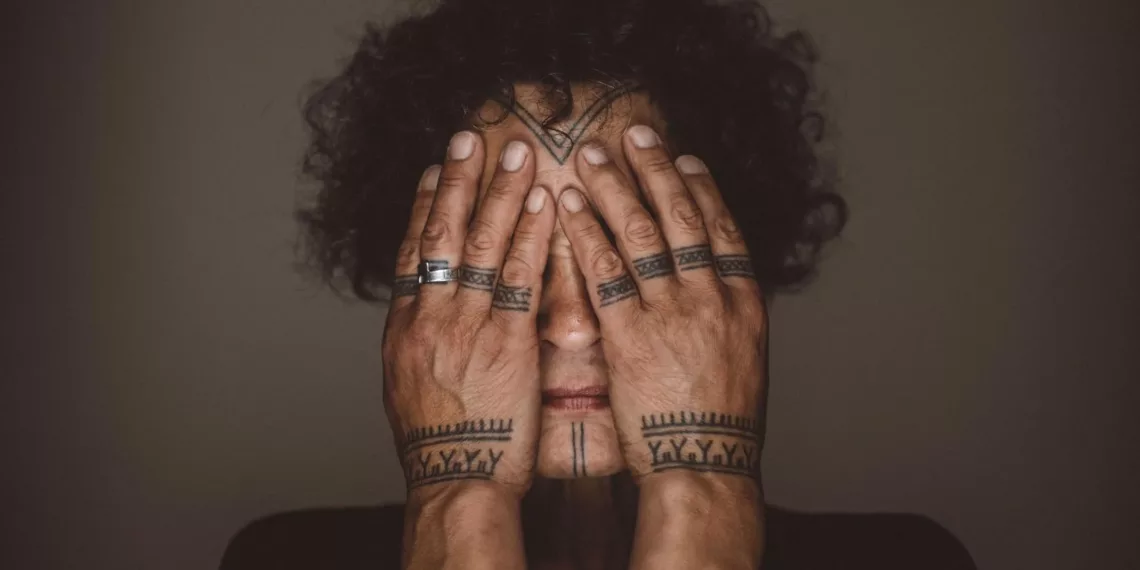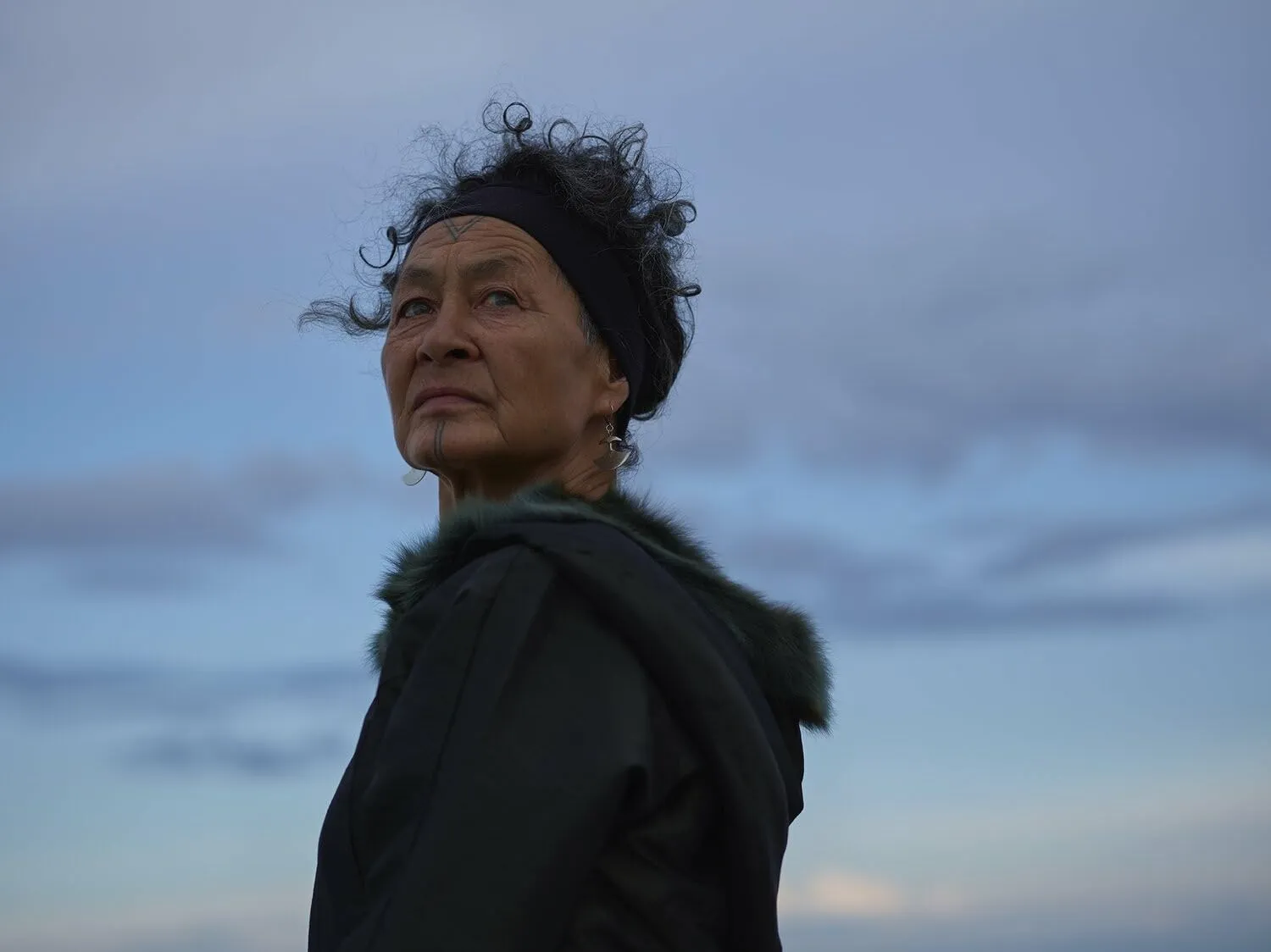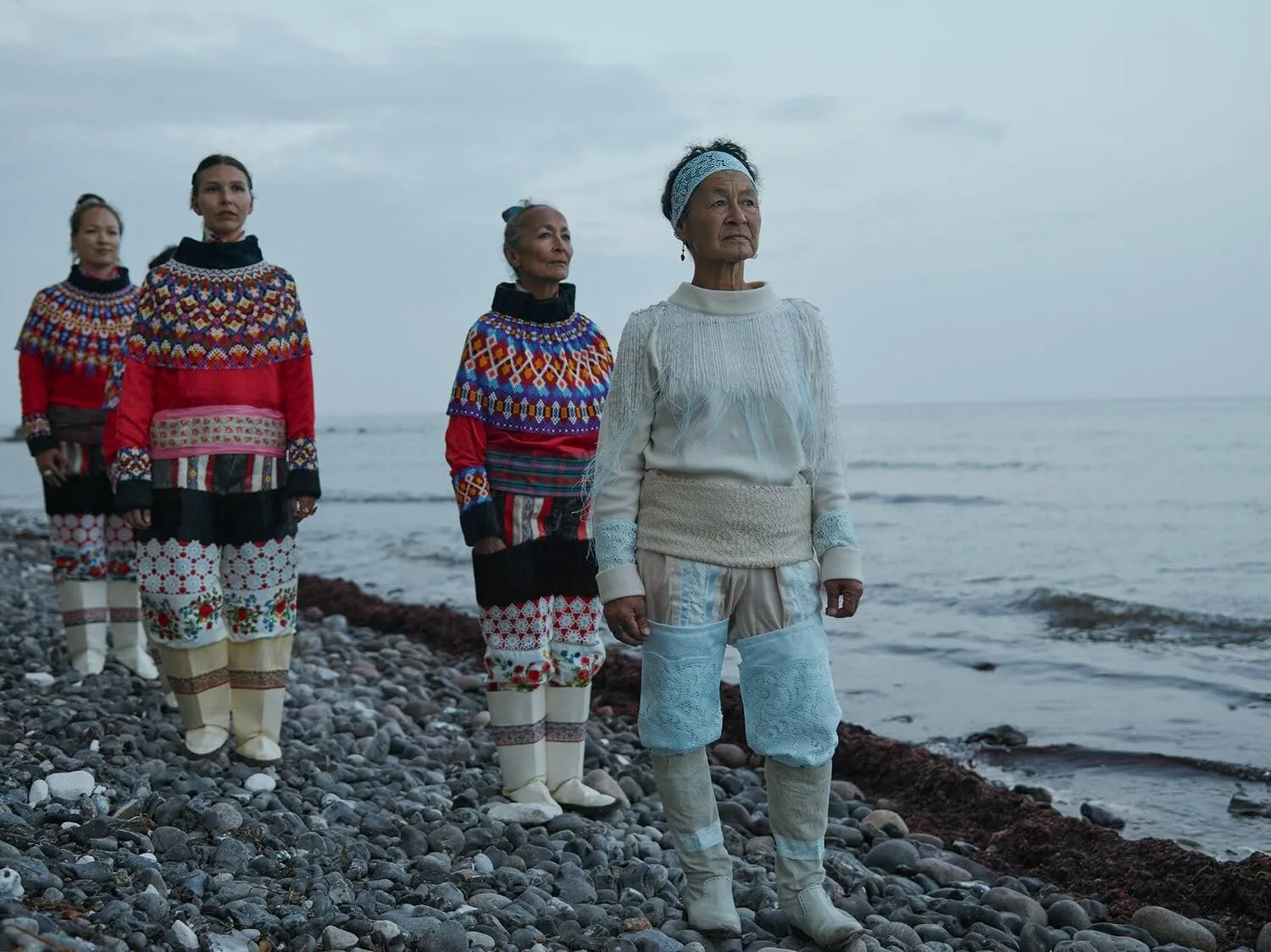Twice Colonized offers an intimate look at the remarkable Aaju Peter. As the film follows the Greenlandic lawyer over seven years, we see her contend with personal struggles like grieving the loss of her son and exiting an abusive relationship. Throughout it all, she continues advocating fiercely for Indigenous rights.
Director Lin Alluna presents a candid portrait of Peter without sensationalizing the more difficult moments. We experience Peter’s resilience in the face of challenges most could not imagine. She navigates trauma while directing her energy towards causes like establishing an EU forum for Indigenous voices.
Alluna allows us to appreciate both the personal complexity and professional achievements unique to Peter. Her story encompasses the interplay between struggles many can relate to and a global advocacy most cannot fully understand. By handling sensitive topics with empathy and preserving subject consent, Twice Colonized examines one woman’s life in a thoughtful manner that invites audiences along on her journey of healing through continued fighting for her people.
Through emotional trials and victories alike, Peter remains devoted to her cultural mission despite outside forces working to diminish her worth. Her character, as portrayed in this documentary, reminds us that perseverance can itself constitute a form of meaningful resistance.
Through a Child’s Eyes
Aaju Peter grew up immersed in the traditions of her Greenlandic homeland. But at age eleven, she was selected for an academic program and sent overseas to board with Danish families. For Peter, this transition was profoundly difficult.
Living abroad separated her not only from family but from the Inuktitut language and cultural practices that shaped her early years. Suddenly immersed in Danish culture, Peter lost the connection to identity rooted since birth. A sense of displacement took hold, distancing her from what felt natural.
Upon returning home years later, assimilation’s effects became clear. Peter struggled to feel fully belonging anywhere. This experience of being torn between worlds against her will is what lends deep significance to the film’s title, “Twice Colonized.”
As a child, Peter fell victim to a system claiming to offer opportunity yet asserting another’s dominance over her development. Though meant as a privilege, this “education” had the inverse result of marginalization from her indigenous community. That internal rupture would influence Peter’s dedicated advocacy ever since.
Her lifelong mission is reclaiming Inuit identity on their terms, not those imposed. Helping ensure future generations do not undergo what she did—reconnecting to language and traditions severed too soon. When forced to leave her native culture behind as a girl, a seed was planted that would grow into her boundary-pushing activism.
Now living as an artist and attorney fighting for her people at international levels, Peter proves how resilience and perseverance can help remedy even the most personally profound of colonizing scars.
Courage in the Face of Tragedy
Aaju Peter faced struggles that would challenge even the strongest of spirits. Twice Colonized handles these moments with great care, never sensationalizing yet still letting their full impact be felt.
Losing her son to suicide was staggeringly painful. In a single devastating moment, Peter’s world was forever altered. The film presents this tragedy with somber tenderness, respecting her need for privacy in mourning. We sense her resilience even as grief threatens to consume her.
Her relationship likewise took immense strength to escape. Subjected to control and degradation, many would have understandably fled such a situation sooner. But escaping an abusive dynamic is a harrowing process, and the documentary accompanied Peter with empathy throughout.
Even in these deepest valleys, her dignity and determination shone through. Never did she appear a hapless victim—only human, coping as best she was able. By granting access yet avoiding exploitative sensationalism, the film honored her agency and experience.
Baring such private wounds could not have been easy. That Peter allowed a glimpse of her vulnerability, through a period of immense upheaval, affirmed her compassion alongside fortitude. Her willingness to walk such a difficult road illuminated a greater purpose: ensuring unjust societal forces do not define her nor diminish her people’s worth.
Paradoxically, Peter’s strength was best displayed not when fighting external battles but when persevering amid life’s most painful intimate blows. Her resilience in the face of tragedy grants audiences deep respect for a spirit that would not be broken.
Fighting on Multiple Fronts
While grappling with personal hardships, Aaju Peter took her advocacy worldwide. We see her determination as she establishes an Indigenous forum within the EU, sharing her people’s stories with those crafting far-off policies.
In defending seal hunting, a vital cultural practice made taboo, Peter confronted biased views with grace. She articulated how such bans deepened economic difficulties, linking them to societal issues like rising suicide rates. Her ability to educate wider audiences, acknowledging both modern viewpoints and Indigenous truths, was admirable.
At times the film struggled to contain Peter’s formidable agenda within its runtime. As she lobbied parliament or addressed the UN, moments seemed too brief to fully appreciate her strategic mind and steadfast message.
Peter utilized each platform to respectfully challenge colonial ideologies ingrained over generations. Whether asserting cultural rights or opposing the narrative of Indigenous peoples as relics, her vision compelled reexamination of biased assumptions.
Through it all, she maintained a balanced perspective, driven not by resentment but by rebuilding what was lost. Peter fought not to condemn but to claim ownership of Inuit destiny. She exemplified resolving past injustices through both acknowledging histories and authoring new chapters of empowerment and understanding.
Her work reminds us that equality and humanity are achieved not through hostility but by enlightening former oppressors and oppressed alike with open and honest dialogue.
A Visual Symphony of Resilience
The cinematography of Twice Colonized brings Peter’s story to life in a way that’s almost musical. DoP Iris Ng captures raw, intimate moments alongside sweeping Arctic vistas. Her roaming yet purposeful camera seems to flow with the emotional ebbs and swellings.
Editor Mark Bukdahl incorporates these images skillfully, utilizing jagged cuts and collisions of contrast to match the film’s restless underlying pulse. When composing scenes of resilience and vulnerability, the editing refuses to settle for a single steady tone.
Woven throughout is an evocative soundtrack featuring traditional vocals and strings. It arrives suddenly yet deliberately, amplifying dilemmas or jolting us to attention during pivotal speeches. Like Peter herself, the music never allows a simplistic reading, instead enhancing complexity.
Short fictional scenes, whether symbolic or depicting the subjective, add surreal poeticism. While fleeting, they offer imaginative portals into Peter’s interior world. More of these creative interludes could have expanded understanding.
Overall, Twice Colonized presents an aesthetic wholly in step with its dynamic subject. Not conforming to easy formulas, the dynamic imperfections of form become virtues in appropriately framing a life refusing reduction. Technical mastery here exists not despite but because of fully embracing the chaos of living with resilience.
Beyond Survival, a Call for Empowerment
Twice Colonized delves into weighty subjects with nuanced understanding. Central is deconstructing how colonialism affected both the public and private realms of Peter’s world.
We see its cultural and psychological impacts through her experiences. The film avoids reduction, showing denial of Indigenous practices as about more than preservation—it’s a means of control. When fighting bans on seal hunting, Peter articulated her people’s rights in a modern context rather than framing it as tradition vs. progress.
Her advocacy illuminates complexities less could convey. As with trauma from forced assimilation, dismantling such legacies demands acknowledging intergenerational trauma alongside contemporary struggles. Only by facing these difficult realities with empathy can outsider views change.
The documentary illustrates Indigenous communities want equal say in decisions shaping their lives. Through Peter, we learn remedying colonial wrongs requires respecting cultural self-determination. Communities shouldn’t be fixed in the past but empowered to determine vibrant futures honoring ancestral roots.
Audiences gain nuanced lessons about systemic issues like lack of regard for Indigenous sovereignty that inspire civil rights abuses worldwide, not distant problems. The film prompts examining one’s role in perpetuating such harms—even well-meaning actions like Peter’s forced “opportunities” caused cultural alienation.
Ultimately, Twice Colonized conveys justice lies not in attacking perceived enemies but in forging understanding between all parties. Only through open and honest dialogue from a place of shared humanity can true progress emerge.
A Defiant Voice that Echoes Louder
Throughout Twice Colonized, one woman’s perseverance in the face of immense challenges inspires hope. Aaju Peter battled personal sorrows and societal injustices, yet her advocacy grew only fiercer.
This documentary presents a nuanced portrait capturing the fullness of her experience. We witness resilience nurtured through cultural roots and shared with her people. In Peter, healing arises from empowering future generations as she continues empowering herself.
Alluna’s film brings deserved focus to an important global conversation. By establishing an intimate yet thoughtful understanding of the human realities behind the headlines, it cultivates more enlightened debate. Audiences leave with perspective on injustice that manifests through subtle as well as overt means.
Peter’s story reminds us that equality emerges through good faith on all sides, as she sought not condemnation but cultural determination free from externally imposed limits. Her defiant spirit urges society to make heard voices once silenced. Ultimately, justice arises from acknowledging shared humanity.
Viewers would be remiss to miss this affecting film. It presents a life’s lessons through a singular figure certain to echo long in the ongoing pursuit of rights and reconciliation.
The Review
Twice Colonized
Twice Colonized tells a profoundly moving story with care, nuance, and insight. Director Lin Alluna has crafted an intimate yet thoughtful portrait of Aaju Peter—a singular woman who battled immense challenges with quiet defiance. Her life and work shine a light on issues that deserve thoughtful consideration from us all.
PROS
- Nuanced examination of colonialism's personal and societal impacts
- Sensitive yet unflinching handling of difficult scenes
- Insightful cultural and political commentary from Peter
- Compelling protagonist in Aaju Peter
CONS
- Some segments like speeches feel too brief
- Narrative balance could be improved





















































